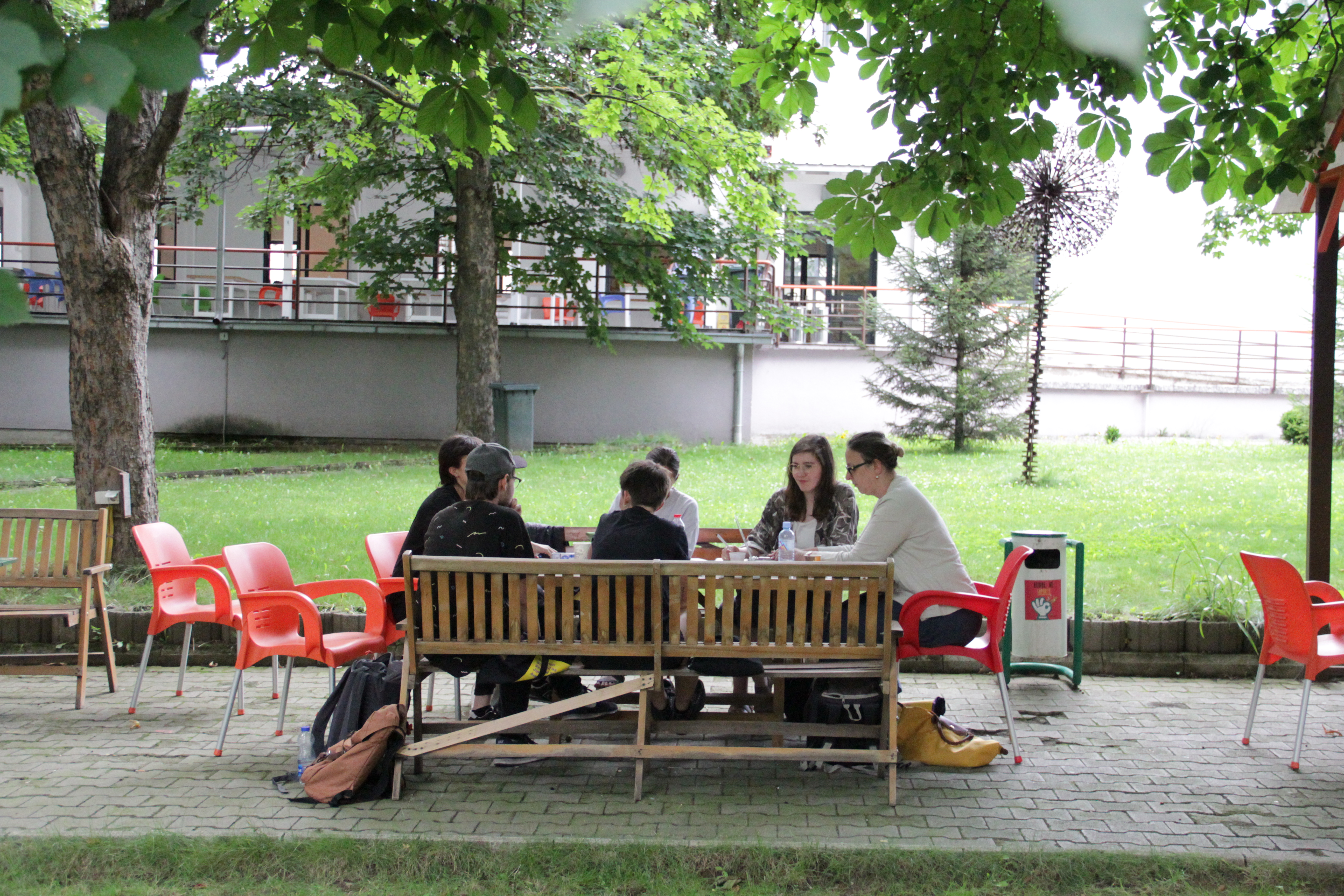- Course 3: Protest, Imagery, Art: Feminist Politics and Practice in Post-Socialist, Post-War Kosovo

Course 3: Protest, Imagery and Art: Feminist Politics and Practice in Post-Socialist and Post-War Kosovo
Course by Nita Luci, Linda Gusia and Vjollca Krasniqi
July 16 – 25, 2018
Course description
This course will examine feminist politics and practices in Kosovo via two historical modalities: post-socialist disintegration and the making of identities in public and private spaces; and post-war public art as an experience of the daily encounters between power and aesthetics. It will interrogate regimes of representation, discursive practices and the visual repertoire of representations; it will explore the ways in which they enable boundaries between national and gender identities, their relation to political and cultural particularities and more global connections (post-intervention protectorate, EU).
How do public performances, installations, memorials and protests become vehicles for recognising the intersection of competing ideologies, specifically different feminist positions? The course will rely on theoretical textual analysis, video and archival analysis, artistic works, material presentations of memory and protest material. It also aims to unfold a series of theoretical, methodological and epistemological positions within the social sciences and feminist practice. It will rely on a number of case studies from Kosovo, specifically the commemoration of war-time sexual violence, the work of Have It collective and the Kosovo women’s movement protests against violence against women. In this context, protests will enable a better understanding of how women’s activism and art intersect, giving way to novel feminist articulations within social movements.
Biographies
Nita Luci is a lecturer at the departments of Anthropology, Sociology and Contemporary Art at the University of Prishtina. She holds a Ph.D. in Anthropology (University of Michigan, Ann Arbor). Her research includes topics of gender and manhood, social and political movements, state and post-socialism, nationalism, contemporary art, military intervention, memory and violence. In 2013 she co-founded the University Program for Gender Studies and Research, UP, which she currently co-chairs. In 2013 she was visiting research scholar and fellow at the Gender Research Institute at Dartmouth College. In addition to her university engagements she also serves on the boards of a number of civil-society organizations in Kosovo focusing on gender, LGBT rights, gender based-violence, research and activism. Selected publications include The Making of Citizenship Against Corruption in Kosovo: Protest, Lies, and the Public Good (Edward Elgar, 2016); “Our men will not have amnesia”: Civic Engagement, Emancipation, and Gendered Public in Kosovo (co-authored with Linda Gusia, CEU Press 2014); Un/welcomed Guests: NATO Intervention in Kosova (Routledge, 2011); Events and Sites of Difference: Mark-ing Self and Other in Kosovo (co-authored with Predrag Markovic, Ashgate 2009); Superfluity: Cultural Policies and Contemporary Art (2008); The Politics of Remembrance and Belonging: Life Histories of Albanian Women in Kosova (co-authored with Vjollca Krasniqi, 2006); Transitions and Tradition: Constructions of Gender, Nation and Family in Kosova (LitVerlang 2005); Das Schweigen der Frauen: Genderkonstruktionen und Genderdynamiken in Kosova vor und nach dem Krieg (LitVerlang, 2004); and Endangering Masculinity in Kosovo: Can Albanian Women Say No? (2002).
Dr. Vjollca Krasniqi, is a sociologist. She is an assistant professor at the Faculty of Philosophy, University of Prishtina. She is the chair of the University Program for Gender Studies and Research. She holds a Ph.D. from the University of Ljubljana, a M.Sc. degree in Gender, Development and Globalization from the London School of Economics, and a BA degree in Philosophy and Sociology from the University of Prishtina. Her research interests are gender, nation and collective memory, post-war reconstruction and post-war justice, and social policy. She has led and participated in numerous international research projects. In Spring 2016, she was a visiting scholar at the Gender Research Institute at Dartmouth College. She has been active in the women’s movement in the Balkans and organized/participated in a number of international conferences on political and gender issues.
Linda Gusia teaches at the University of Prishtina, Department of Sociology. She received her M.A. from New York University (2003) and her Ph.D. from University of Prishtina (2016). She is currently member of the Steering Committee at the Program for Gender Studies and Research at University of Prishtina. In 2014 she was a fellow at the Gender Research Institute at Dartmouth College. Her research interests include gender, sexuality, nationalism and collective memory in the context of conflict, war and public spaces. As part of her PhD thesis she interrogated ambiguities of nationalism and gender through the lens of the women’s movement in Kosovo and sexual violence as a strategy of war, looking closely at visual and textual representations of the politics of gender. Her recent publications include: Sociología pública y global de los movimientos sociales Breno Bringel y Geoffrey Pleyers (Editores) Capitullo 14 “Te estamos viendo“: protestas y violencia en Kosovo, Michael D. Kennedy and Linda Gusia, We are seeing you - Open Movement, Michael D. Kennedy and Linda Gusia; “Our men will not have amnesia”: Civic Engagement, Emancipation, and Gendered Public in Kosovo” (co-authored with Nita Luci), in “Civic and Uncivic Values in Kosova: Value Transformation, Education, and Media”, edited by Sabrina P. Ramet, Albert Simkus, and Ola Listhaug (CEU Press, 2015); and “Heshtja përkundër njohjes”, Njohja Instituti për Studime Sociale dhe Humanistike, Fakultetit Filozofik, Universiteti i Prishtinës, Prishtinë, 2014.